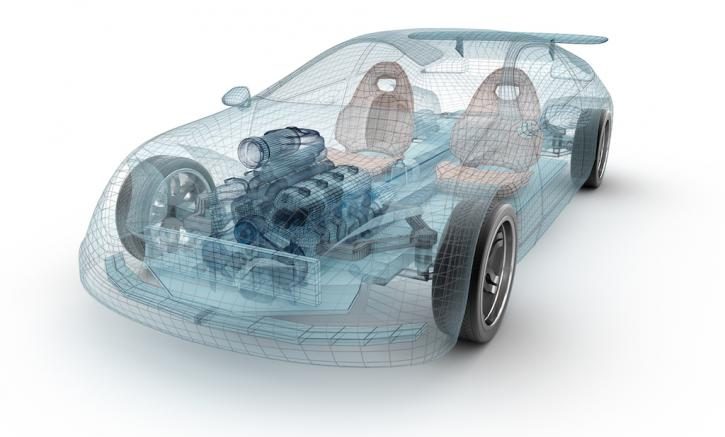With new fuel efficiency standards down the road, manufacturers are playing with plastics to lighten the load.
Within three years, the average car is expected to use nearly 800 pounds in plastics, and with an annual economic impact of more than $27 billion, the automotive sector in South Carolina is beginning to exert itself around the world.
Did you know plastics made their first appearance in automobiles during the 1950’s? Did you know more than 14 tons of plastics were used in the complete manufacturing and logistical processes of a BMW in 2016?
Right now, carmakers are eyeing lighter materials, like plastic, to reduce a vehicle’s weight and comply with upcoming government regulations. As fuel efficiency standards become more stringent, reductions in fuel usage are becoming more than environmentally friendly, they are quickly becoming the law.
By 2025, the Corporate Average Fuel Efficiency (CAFE) standards will mandate manufacturers produce passenger vehicles averaging 54.5 miles per gallon.
A Plastics Today article published in 2015 suggested some mainstream automakers would attempt a conventional metalworking approach to reduce weight and fuel usage, while many more would look for more innovative solutions.
Right on cue, polymer engineering and plastics are beginning to push aluminum and other metals out of cars altogether. Most of the average vehicle’s interior is already plastic. In fact, a typical car is outfitted with hundreds of plastic parts, by themselves, or molded together.
But plastics already play a recurring role in the production of an automobile. From wire harnesses, plastic pallets, returnable totes and injection molded components, to molded seat pads, interior trim and radiator shrouds. From seat cushions, seat belts, airbags and bumpers, to door panels, interior panels and display. From the drawing board and production line to the vehicle’s final assembly and time on the road, the use of plastics is not only apparent, it is a growing need.
High performance plastics like polycarbonate are expected to even one day replace the use of glass throughout an entire car. Materials like polypropylene, polystyrene, polyethylene and poly-vinyl-chloride provide better safety and economy, offer minimal corrosion to increase the vehicle’s lifespan, and make it easier to integrate components and allow design freedoms.
However, there are some concerns lighter and more versatile materials like carbon fiber and advanced plastics could clog the supply chain. According to the same Plastics Today article, the sector’s supply base is viewed as difficult and expensive to enter for new suppliers. As a result, manufacturers of these materials are restricted.
South Carolina’s automotive sector relies on its existing supply chain efficiencies to employ 66,000 men and women statewide, and these numbers are beginning to balloon. The sector has quadrupled in the last 20 years, is one of the nation’s top ten fastest growing labor forces and has seen $6 billion in capital investment since 2011.
With current economic and environmental conditions in mind, the manufacturing of more fuel-efficient cars has become a top priority in the automotive industry. Acting as an aid in this endeavor, the innovation of plastics is improving the customer’s value and increasing their safety.
As the state’s automotive sector continues its expansion, car manufacturers will continue to install lighter materials to meet the 2025 CAFÉ standards set during the Obama Administration by the Department of Transportation (DOT) and the U.S. Environmental Protection Agency (EPA).
A release issued by the Whitehouse in 2012, suggested the new fuel efficiency standards would encourage innovation and investment in advanced technologies that would increase economic competitiveness and support high-quality domestic jobs in the auto industry.
With what we are seeing in the growing use of advanced plastics in the automotive sector, it would be difficult to deny the federal government’s assumption five years ago.
About the Author:
Mark McClure is the VP of operations at International Plastics, with over 30 years of experience in the flexible packaging industry.



Be the first to comment on "Within three years, 800 pounds of your car will be plastic"